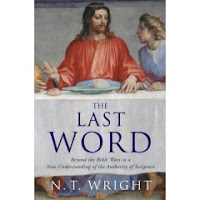 One of the books that I've read recently is God Was In This Place and I, i Did Not Know... by the great mystical Rabbi Lawrence Kushner. For the next post or two, I'm going to reflect on some of the concepts that he proposes.
One of the books that I've read recently is God Was In This Place and I, i Did Not Know... by the great mystical Rabbi Lawrence Kushner. For the next post or two, I'm going to reflect on some of the concepts that he proposes.About two years ago, I read a book by Terry Esau called Surprise Me. It was basically a journal about his desire to see God in the ordinary experiences of life. He would simply begin each morning by simply praying, "Surprise me, God" and then see what happened. He discovered that, when he was paying attention, he was able to discern the reality that God is constantly on the move and at work in the midst of the ordinary. What I didn't realize was that this concept had already been written about by Kushner. Not that Esau stole the idea or that I believe the rabbi should sue him. On the contrary, Terry Esau's book was instrumental in preparing my mind for eventually finding and understanding Kushner's masterpiece.
Kushner's book is an exhaustive exploration of the scene in Genesis 28 in which Jacob goes to sleep in the wilderness and had a dream involving God and a ladder. He awakens from the dream and exclaims, "Surely God is in this place, and I was not aware of it." The book explores eight different interpretations of the text by eight different Jewish rabbis. While each rabbi gives a completely different interpretation, all of them seem to work in concert with one another to create a rich and flourishing understanding of one single passage that so many of us have never thought twice about. Ultimately, the question we are left with is this: "Has God been in this place all along without my realizing it?"
He goes on explore the significance of the scene in Exodus where God calls Moses from within a burning bush. What Kushner explains is that it must take several minutes for a bush to be fully burned up by fire so for Moses to "see that the bush was not consumed" would have required several moments of simply staring at the bush. He could not have simply glanced at the bush and had this realization. He would have needed to stand still and stare to realize that something odd was indeed taking place. Kushner says this:
“The ‘burning bush’ was not a miracle. It was a test. God wanted to find out whether or not Moses could pay attention to something for more than a few minutes. When Moses did, God spoke. The trick is to pay attention to what is going on around you long enough to behold the miracle without falling asleep. There is another world, right here within this one, whenever we pay attention" (Kushner 25).
These words are so profound. I wonder how often in our age we miss the fact that there are burning bushes all around us? I wonder what we would see if we would simply pay attention and quietly pray, "Surprise me, God." (in case this is sounding familiar to anyone, I preached a sermon titled "God Was In This Place" back in November. This post is a continuation of that discussion)
Kushner goes on to say this:
"The beginning of knowing about God…is simply paying attention, being fully present where you are, or…waking up. We realize, like Jacob, that we have been asleep. We do not see what is happening all around us. For most of us, most of the time, the lights are on but nobody’s home" (Kushner 26).
This is brilliant to me. Even as I type this, I'm listening to music (it's a cover band called Shaw Blades, if you're curious). When I'm at home, my television is almost always on. When I'm in the car, I've got my Sirius radio. When I've got free time, I read. And regrettably, often when I am in conversation with other people, my mind has moved on to the next thing on my list. While I certainly feel that I've gotten much better in regard to these things in the past few months (since the good rabbi was gracious enough to tell me about this concept), I still feel that I have a long way to go. I need to learn to watch for burning bushes. I'll leave you with one final quote from Rabbi Kushner:
“If God was here, and I didn’t know, then perhaps God has been other places also" (Kushner 27).
Where has God been without my knowing it?


